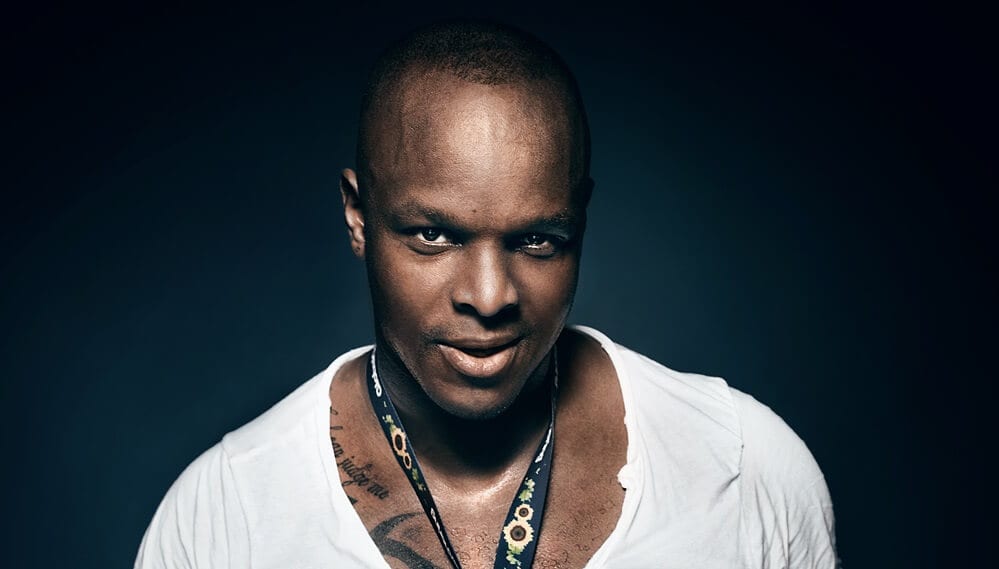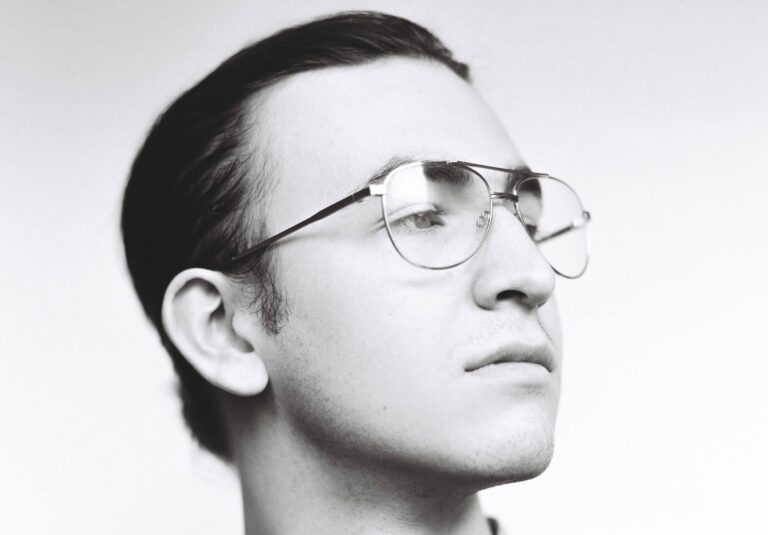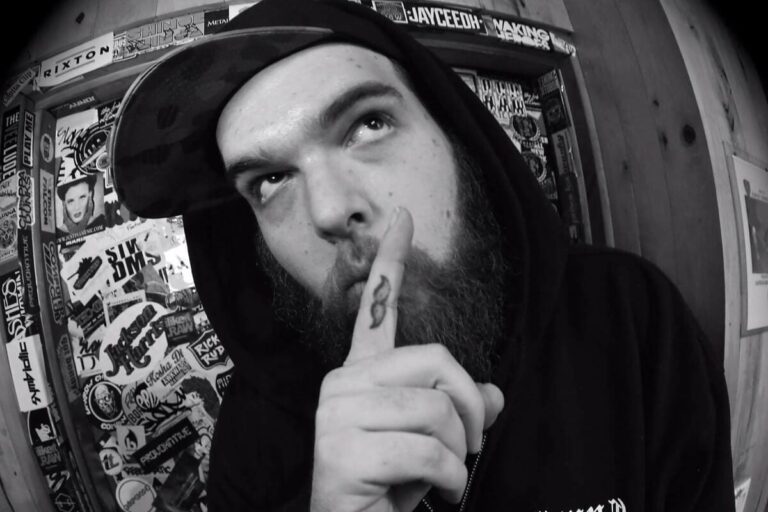Few DJs have contributed to jungle and drum & bass with as much consistency, authority and tenure as Leroy Smalls.
A hip-hop and rare groove DJ since the mid 80s, previously known as Scratchenstein, from his Midlands outpost Leroy and his Formation Crew cohorts helped to usher in a new rave era in his hometown of Leicester…. From their Total Kaos events to the city’s most famous dance music record store 5HQ and Formation Records, the longest standing label in drum & bass.
Launched in 1990 and motherlabel to well over 30 sister imprints, Formation Records joined the dots from hardcore to jungle to drum & bass and played a role in the early careers of many artists with the likes of Tango, John B, Nero, Nu:Tone, The Prototypes, G-Dub, Twisted Individual, D*Minds, Critical Impact, Rollz all enjoying early releases on one of SS’s many labels.
Leroy wasn’t shy of a seminal banger himself. The man behind the famous anthem The Lighter, he was responsible for a whole slew of cuts, especially under his MA alias, that soundtracked and influenced musical paradigm shift from hardcore and acid house into the much darker and faster jungle sound that still packs a punch to this day. For added measure, he’s also behind World Of Drum & Bass, a brand that launched in the early 2000s as the first global D&B promotions/events company and galvanised the international chapter of the genre that was emerging at the time. Still painting a technicolour picture of the scene with its bookings, World Of Drum & Bass continues to tour worldwide to this date.
Formation Records remains in fine fettle, too. Currently celebrating their 200th release with a three set, sixty track album that covers the label’s earliest roots (including a Carl Cox remix of SS’s DJ’s Anthem) and stacks of newness from the likes of Serum, T>I, Turno, Aggressor Bunx, Saxxon, Drumsound & Bassline Smith and SS himself. We called him up to find out more…
This album’s been on the bubble for a minute now. Sixty tracks. So many moving parts…
So many! I’ve been working on this for a long time. It was meant to be 30 tracks to begin with but it just got bigger and bigger. I also wasn’t going to include the classics and just focus on the future for the label but going through the classics I realised how much of them needed to be on the album to tell the story.
It feels like with the new tracks some people have pulled out their best stuff. Disaszt’s track is nuts and Aggressor Bunx do something different to what you’d expect, too…
They do don’t they. They started sending me tunes but they were all tunes they thought I’d want to sign so I told them to just send me something different. Something they wouldn’t expect me to sign and this came through. They went in didn’t they? It’s got soul. They got more stuff lined up for another 12 coming too… That’s another reason why this album needed to be out, I got some sick releases to get out afterwards. From them and some other sick new guys.
That’s the whole thread of Formation. Supporting new talent. Right back from the start…
Yeah. When we first set up there was very little help for new artists. There was no internet so we couldn’t look up where to get records pressed or mastered or distribution. Especially being up north. We came down to London to link up with people and had a lot of trial and error so when we finally launched Formation I want it to be a label that could give the new guys an opportunity and push them because we didn’t feel we got that ourselves that much.
Being up north you were outsiders?
Yeah no matter what we did. That was the challenge and why we stepped up. London was very jungle-oriented but the midlands and north were rave-oriented. People would make fun of our accents and call us country boys.
I know a lot of people would stop and buy records from you though. Phantasy’s told me about going over with Carl Cox to see you…
Yeah they’d come up all the time! Carl Cox did a remix for me once. DJ’s Anthem. He told me he loved the tune and he wanted to do one so I said ‘yeah go and do your thing’ and he came back quick time with a killer remix. He played my birthday party one year! They were crazy times and yeah the shop played a role in that when guys were booked to play up here, they’d come in. I remember his last hardcore gig, he told me he was going in a different direction which obvious turned out to be the techno he’s become king of now.
The famous split. Before then most DJs cherry picked from across the board to create their style but this was when DJs were kinda forced to make a decision weren’t they?
That was exactly it. It was good for individuals, but I felt that took away the beauty of what we started on; coming together and playing music across the board. It gave people an opportunity to become picky and create more and more subgenres. That’s not why we did this thing.
I was trying to pin-point Formation’s development in terms of that switch. Was it the A Need Breed Of Ravers album? That was 93, Tango was way ahead of the curve on that on that vibe. Your MA1 and MA2 tunes were early ones on that tip too…
Yeah it was around that time. Rave was getting cheesier and I had that hip-hop perspective. I wanted the breaks, the basslines, not white gloves and big pianos. I wanted to connect back with my peeps. Not just ravers wasted out on Es. I wanted to connect with regular people who wanted the music I wanted. DJing is an artform. You need to draw and select to keep the crowd on and adapt to situations.
Which is where you came from prior to rave with the Formation b-boy crew. That eclecticism.
Yeah. Hip hop, R&B, soul, house, funk. It was the collective. That was back in 1985. That was my learning curve. By the time rave came along I was already scratching and reading the crowd.
Is that eclecticism why you had so many sublabels and series like the Zodiac one?
Yeah that and we just had a lot of amazing music we wanted to release from other people and myself. I had so many different aliases that I wanted to experiment with, too.
New Identity was a big one for experimental stuff. That label gave us John B…
It did but it was mainly set up for Matrix if I’m honest.
The Message!
You know it. That tune blew me away and I needed to release it. So New Identity was born for that tune and anything we really loved about integrating other styles into drum & bass, like jazz and soul. John came a year or two later.
I love how he came through with an album very early in his career
Yeah man he was ahead of his time. Look at the vocal stuff and poppy hooks he did was doing 15 years ago and then look at everyone trying to jump on that 10 years later. He’s so talented. His dad is amazing, too. I remember going to John’s house and it was full up with synths his dad was buying. He had a very special sound and talent. He still is totally unique.
Who else do you look back at feel proud of working with?
Everyone. Every single person who’s released on any of the labels has made the label what it is. There’s been problems with people over the years, bring business into any relationship and there’s going to be disagreements. But everyone contributed. Twisted Individual stands out because of his pure passion and bare ability. He slept in the attic of our studios for six months and grafted so hard. I gave him a studio and ran with it. He’s a genius. I’ve never seen anyone work like how he works. There’s more to that man than meets the eye. I know he’s made some decisions and statements that mean people might think differently about him differently but the Twisted I know ain’t as basic as what people have simplified things to be. I have great memories of working with him when he was at his peak of being a proper artist.
Music flows from him naturally. When he lets it flows that’s when he’s his best. Artists are best left being artists full stop; it’s when they’re thinking about what this man says or that man or they’re thinking like a label or a manager. They get torn. When they’re artists, just bare natural artists, that’s when you hear their best stuff.
You ever felt like that yourself?
All the time! I don’t take anything personally in business now. It’s only a matter of opinions, you’ve just got to be happy with it yourself. Do your best, be consistent, there’s no short cuts. You have to earn your rights and just let the music do the talking because that’s how you’ll be judged at the end of the day.
Definitely no short cuts. This takes time!
A lifetime! Look at Serum and Bladerunner and how much they’ve grafted and how long they’ve been on it. They’re having the time of their lives now and all the recognition is well due. They’ve put in the hours. If you can’t play the long game, you won’t hang around for long. There’s no short cuts in any direction; the mastering, the artwork, you’ve got to invest. Looking back over the history of the label, some artists didn’t get it. They’d see sales figures as pure profits but behind the release is studio costs, label costs, distribution, mastering, marketing. We had a team of six back in those days and I have to be honest I never appreciated them anywhere near as much as I should have. The way the industry has gone in the last 10 or 15 years has been a wake-up call. It’s made us all realise we ain’t special. People are making this music all around the world. The competition is insane. So we have to be at our best all the time to stay consistent and relevant. You’ve got to work harder and we’ve got to do that together.
Less subgenres, more unity? Strength in numbers, like you explained with the I Love D&B playlist interview we did a while back…
Exactly! That’s what winds me up; we never started this thing to be pigeonholes, it was all jungle and drum & bass. People saying they don’t like ‘jump up’ or ‘dancefloor’, it’s all part of the game. I do my World Of Drum & Bass events and I booked everything. I prefer some styles to others but I want to represent the scene. You get tech, you get liquid, you get jump up.
Yeah you see the whole scene from the promoter angle…
That’s how you last the distance; know what people are playing, what the crowds are enjoying, who’s doing well. World Of Drum & Bass started for a reason; because people were trying to tell us around the late 90s / early 2000s that drum & bass was dead.
When garage really blew up?
Yeah that’s it. People were like ‘there’s no radio play’, there are no girls in the dance, clubs weren’t booking it. I was like ‘bruv! I’ve just played in Japan, I’ve just played in Russia, what are you talking about?’ We wanted to make a statement. I went to Miami Winter Music Conference and did the first drum & bass party out there to put the genre on the map out there. Showed them what were capable of doing. World Of Drum & Bass was a directory, a network for people to see fans around the world and connect and know they’re part of something global.
Far from dead…
Far from dead! It had become a global movement. People from all over the world start making it but at the same time I had magazines telling me it was dead. I had people saying ‘you still DJing?’ like I was out of work. I was on tour non stop. And the best thing about World Of Drum & Bass is that it’s a blank canvas; we can bring whatever vibes a country needs to fit their whole scene and then introduce them to different styles. That was the same idea with the I Love D&B playlist and there were much bigger plans for that to begin with. It showed that integration and unity can be done. It needed to be more than a playlist to give it legs and do different things.
I always thought the next logical step would be a festival….
Maybe one day! The most important thing was that was a unit of artists and labels. It wasn’t just one brand. And it was great when it kicked off and you’d see all these different artists from different styles talking and sharing ideas. That was the beauty of it.
Yeah man. So back to the album. I wonder how you picked the classics. We mentioned The Message. How else did you pick the classics?
I kept changing the tracklist so many times. I kept remembering tracks and think ‘I need to add this!’ But I wanted to show every era and tell the story. And the rest will come out in the future. That’s the next part of the Formation project; we’ve got mixes of all the eras from each genre to do them. This is my legacy, that’s the Formation legacy and what we’ve contributed to the scene. That’s the best feeling when I look back on over 30 years. The amount of music we contributed to the genre, the people we’ve worked with and the music we’ve made. We’ve been blessed to do this!
Formation 200 Part 3 is out February 2
Follow DJ SS: Facebook / Soundcloud / Twitter


